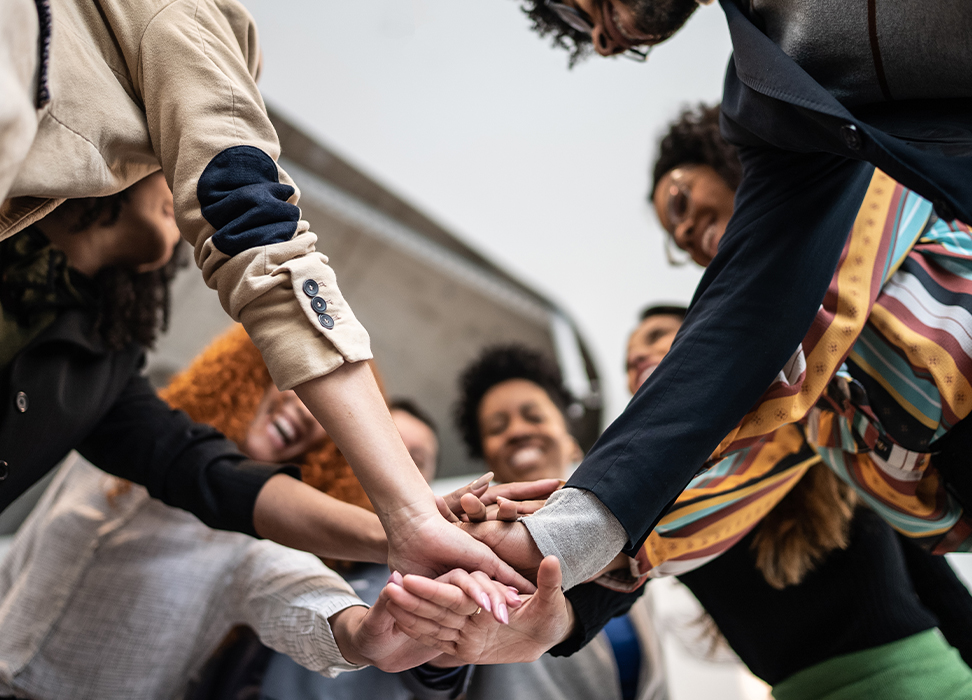
“The 2030 Agenda for Sustainable Development, which is steeped in human rights, is swerving way off-track,” said UN Human Rights Chief, Volker Türk. “Global poverty has risen for the first time in more than two decades. A human rights economy seeks to redress root causes and structural barriers to equality, justice, and sustainability, by prioritizing investment in economic, social and cultural rights.”
This places people and the planet at the heart of economic policies, investment decisions, consumer choices, and business models, with the goal of measurably enhancing the enjoyment of human rights for all.
To ensure that no one is left behind, the Office has joined the Global Coalition for Social Justice, an International Labour Organization (ILO) initiative that is working to advance on the 2030 Agenda for Sustainable Development (SDG) and improve worldwide collaboration in addressing social justice gaps.
“
It is my firm conviction that with determination, and by building new alliances, we can create the conditions to advance social justice as the precondition for peace and stability and change the trajectory that we are currently on.
“
GILBERT F. HOUNGBO, DIRECTOR GENERAL, INTERNATIONAL LABOUR ORGANIZATION
“The overarching aim of the Global Coalition for Social Justice is to unite diverse partners in addressing areas of critical importance to achieve social justice, at the intersection of our respective mandates,” said Sana de Courcelles, Director of the secretariat of the Global Coalition for Social Justice. “We are all very strong in the work of our mandate, but how can we work more and better together to step up our actions and develop collaborative initiatives and solutions that are more holistic and better anchored in the needs of the people we are serving to effectively address those common challenges that we are facing on a global scale?”
To achieve this intersection, the Coalition brings together diverse stakeholders across various sectors including governments, trade unions, representatives of the business community, academic institutions, and international and regional organizations and bodies, as well as international civil society.
Launched in November 2023, as of today, the Coalition has 150 members from all over the world.
Human rights and social justice can’t be decoupled
According to De Courcelles, human rights are a fundamental pillar of social justice.
“UN Human Rights and other partners will be playing a key role in promoting a better application of human rights that goes hand in hand with economic considerations or with environmental considerations, for instance, and that’s really the essence of the Coalition: to ensure that the social component of sustainable development be given due consideration,” she said.
The Coalition’s objectives align with the implementation of a human rights economy, which, according to Türk, would deliver maximum social protection, and quality education and healthcare for all; access to justice and rule of law; effective climate and environmental action; fundamental freedoms, and the broadest possible civic space, amongst other rights.
One of many concrete ways the Coalition intends to have an impact on the ground is through the implementation of the Global Accelerator on Jobs and Social Protection for Just Transitions, which was launched on September 2021 by the UN Secretary General and also aims to accelerate the progress towards the SDGs.
“That’s the type of multi-stakeholder initiative which, has the potential to be a game changer because it brings together different stakeholders who do not necessarily collaborate as closely and in a wholesome manner to tackle deficits and social protection with a very strong national component and end result,” De Courcelles said.
According to Türk, a human rights economy framework “ensures that business models and economic policies are guided by human rights standards and enables an integrated and mission-oriented combination of socio-economic policies that advance each and every SDG goal and target, including in particular by ending discrimination against women and girls, as well as racial, ethnic and linguistic minorities.”
It also advances a fairer distribution of resources that reduces inequalities within and between countries, Türk said.
“A human rights economy is one in which core human rights goals and methods infuse every policy and decision-making process, including taxation, investment and all issues of resource allocation in Government budgets,” he said.
Today is World Day of Social Justice, an international day that marks the importance of social justice being at the core of all national and international policies as its prioritization leads to more cohesive societies and economies.












